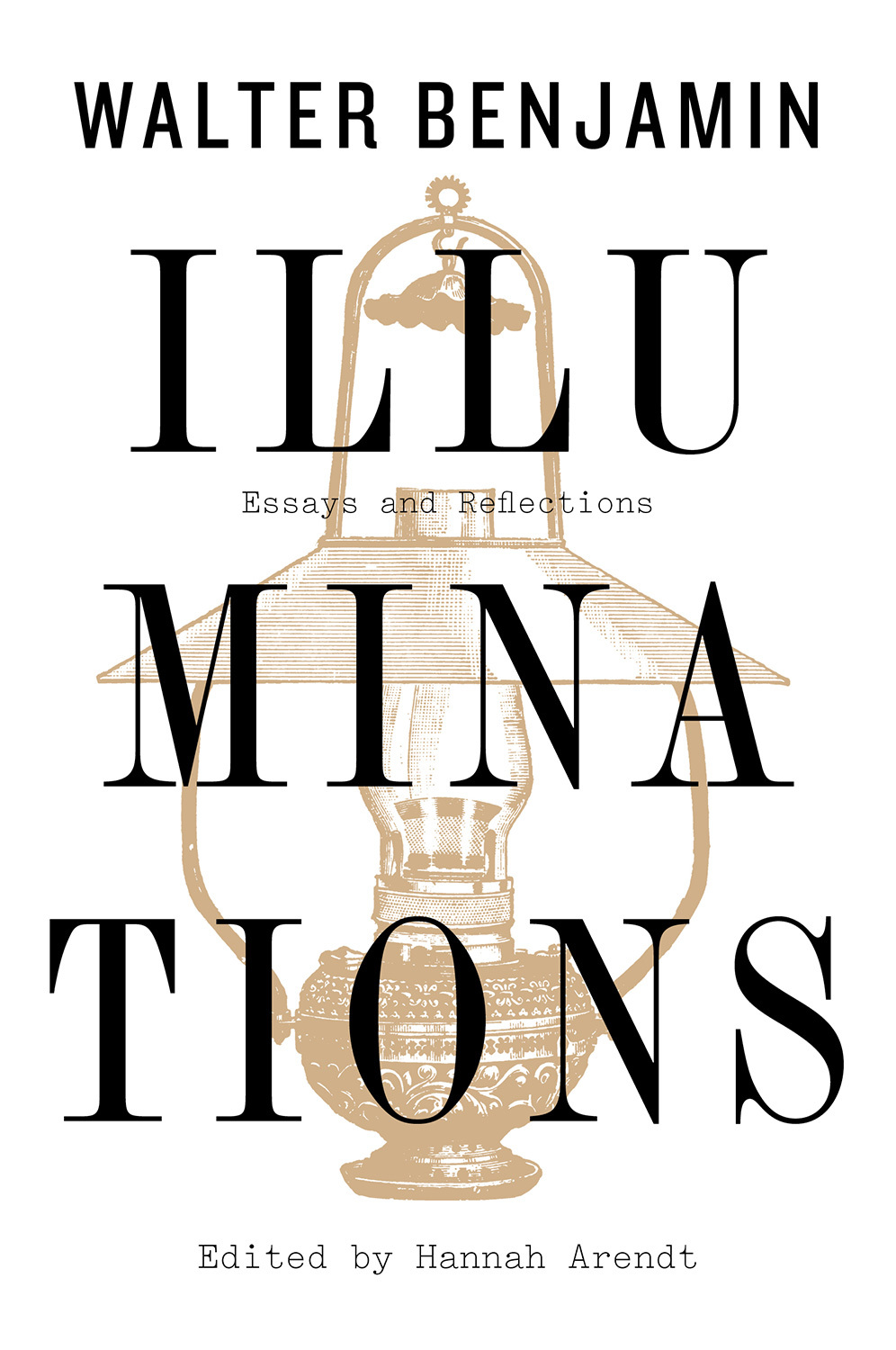

Illuminations: Essays and Reflections
4.3(12047 readers)
Walter Benjamin was one of the most original cultural critics of the twentieth century. Illuminations includes his views on Kafka, with whom he felt a close personal affinity; his studies on Baudelaire and Proust; and his essays on Leskov and on Brecht’s epic theater. Also included are his penetrating study “The Work of Art in the Age of Mechanical Reproduction,” an enlightening discussion of translation as a literary mode, and Benjamin’s theses on the philosophy of history. Hannah Arendt selected the essays for this volume and introduces them with a classic essay about Benjamin’s life in dark times. Also included is a preface by Leon Wieseltier that explores Benjamin’s continued relevance for our times.
Publisher
Mariner Books Classics
Publication Date
1/15/2019
ISBN
9781328470232
Pages
238
Categories
About the Author

Walter Benjamin
Walter Bendix Schönflies Benjamin was a German Jewish philosopher, cultural critic, media theorist, and essayist. An eclectic thinker who combined elements of German idealism, Romanticism, Western Marxism, Jewish mysticism, and neo-Kantianism, Benjamin made influential contributions to aesthetic theory, literary criticism, and historical materialism. He was associated with the Frankfurt School and also maintained formative friendships with thinkers such as playwright Bertolt Brecht and Kabbalah scholar Gershom Scholem. He was related to German political theorist and philosopher Hannah Arendt through her first marriage to Benjamin's cousin Günther Anders, though the friendship between Arendt and Benjamin outlasted her marriage to Anders. Both Arendt and Anders were students of Martin Heidegger, whom Benjamin considered a nemesis.
Among Benjamin's best known works are the essays "The Work of Art in the Age of Mechanical Reproduction" (1935) and "Theses on the Philosophy of History" (1940). His major work as a literary critic included essays on Charles Baudelaire, Johann Wolfgang von Goethe, Franz Kafka, Karl Kraus, Nikolai Leskov, Marcel Proust, Robert Walser, Trauerspiel and translation theory. He also made major translations into German of the Tableaux Parisiens section of Baudelaire's Les Fleurs du mal and parts of Proust's À la recherche du temps perdu.
Of the hidden principle organizing Walter Benjamin's thought Scholem wrote unequivocally that "Benjamin was a philosopher", while his younger colleagues Arendt and Theodor W. Adorno contend that he was "not a philosopher". Scholem remarked "The peculiar aura of authority emanating from his work tended to incite contradiction". Benjamin himself considered his research to be theological, though he eschewed all recourse to traditionally metaphysical sources of transcendentally revealed authority.
In 1940, at the age of 48, Benjamin died by suicide at Portbou on the French Spanish border while attempting to escape the advance of the Third Reich. Though popular acclaim eluded him during his life, the decades following his death won his work posthumous renown.
Among Benjamin's best known works are the essays "The Work of Art in the Age of Mechanical Reproduction" (1935) and "Theses on the Philosophy of History" (1940). His major work as a literary critic included essays on Charles Baudelaire, Johann Wolfgang von Goethe, Franz Kafka, Karl Kraus, Nikolai Leskov, Marcel Proust, Robert Walser, Trauerspiel and translation theory. He also made major translations into German of the Tableaux Parisiens section of Baudelaire's Les Fleurs du mal and parts of Proust's À la recherche du temps perdu.
Of the hidden principle organizing Walter Benjamin's thought Scholem wrote unequivocally that "Benjamin was a philosopher", while his younger colleagues Arendt and Theodor W. Adorno contend that he was "not a philosopher". Scholem remarked "The peculiar aura of authority emanating from his work tended to incite contradiction". Benjamin himself considered his research to be theological, though he eschewed all recourse to traditionally metaphysical sources of transcendentally revealed authority.
In 1940, at the age of 48, Benjamin died by suicide at Portbou on the French Spanish border while attempting to escape the advance of the Third Reich. Though popular acclaim eluded him during his life, the decades following his death won his work posthumous renown.
Reader Reviews
Loading comments...